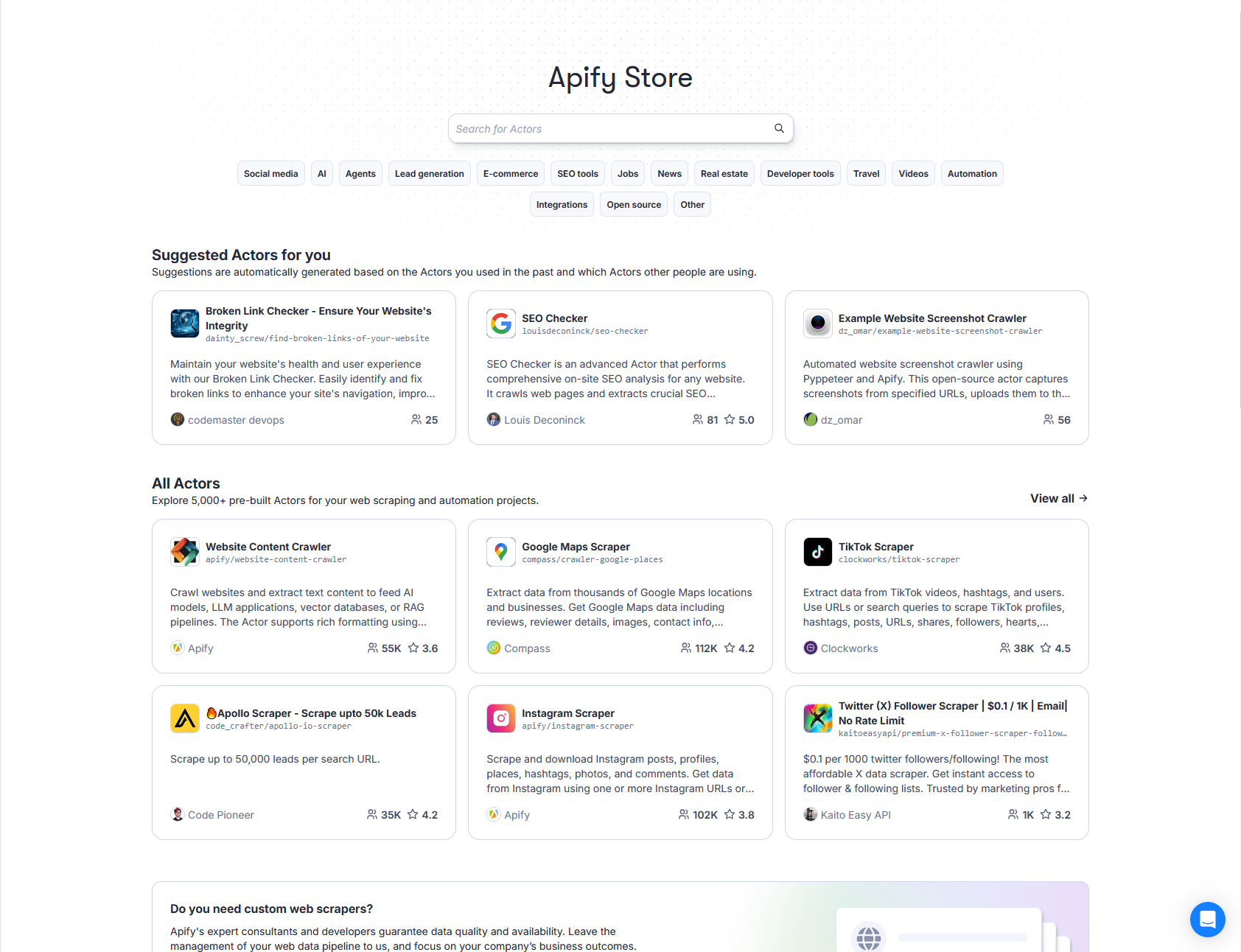Integrations
Learn how to integrate the Apify platform with other services, your systems, data pipelines, and other web automation workflows.
The whole is greater than the sum of its parts.
👴 Aristotle
Integrations allow you to combine separate applications and take advantage of their combined capabilities. Automation of these online processes increases your productivity. That's why we made Apify in a way that allows you to connect it with practically any cloud service or web app and make it part of your larger projects.
If you are building a service and your users could benefit from integrating with Apify or vice-versa then read the integrate with Apify.
Built-in integrations
Apify‘s RESTful API allows you to interact with the platform programmatically. HTTP webhooks notify you and your services when important events happen. By using the API, you can start Actors, retrieve their results, or basically do anything you can do on a platform UI
Apify offers easy-to-set-up solutions for common scenarios, like uploading your datasets to Google Drive when the run succeeds or creating an issue on GitHub when it fails.
Integration platforms
If you use one of the main integration platforms, Apify's support is here for you. The main advantage of these platforms is that you can integrate Apify into very complex workflows with the choice of thousands of supported services.
Data pipelines, ETLs, and AI/LLM tools
The Apify platform integrates with popular ETL and data pipeline services, enabling you to integrate Apify Actors directly into your data integration processes.
If you are working on AI/LLM-related applications, we recommend looking into the many integrations with popular AI/LLM ecosystems. These integrations allow you to use Apify Actors as tools and data sources.
Other Actors
Explore Apify Store for Actors that may help you with integrations, for example, MongoDB Import or MySQL Insert.





























